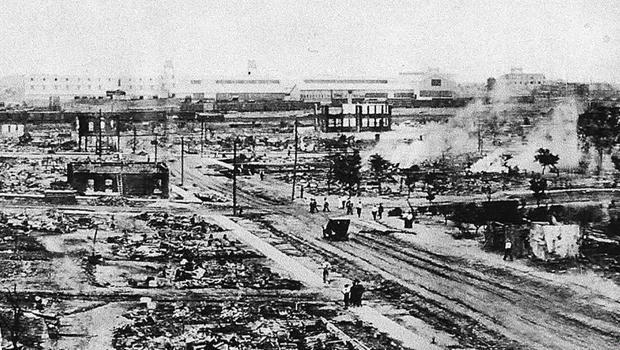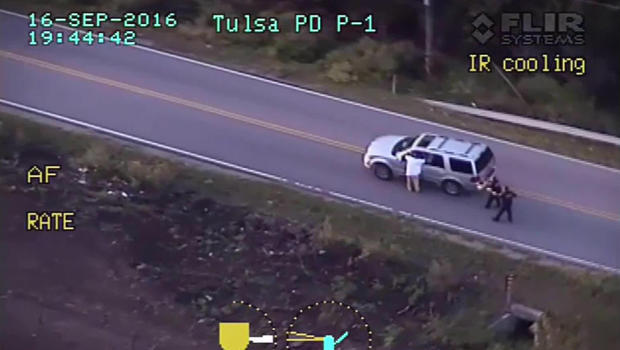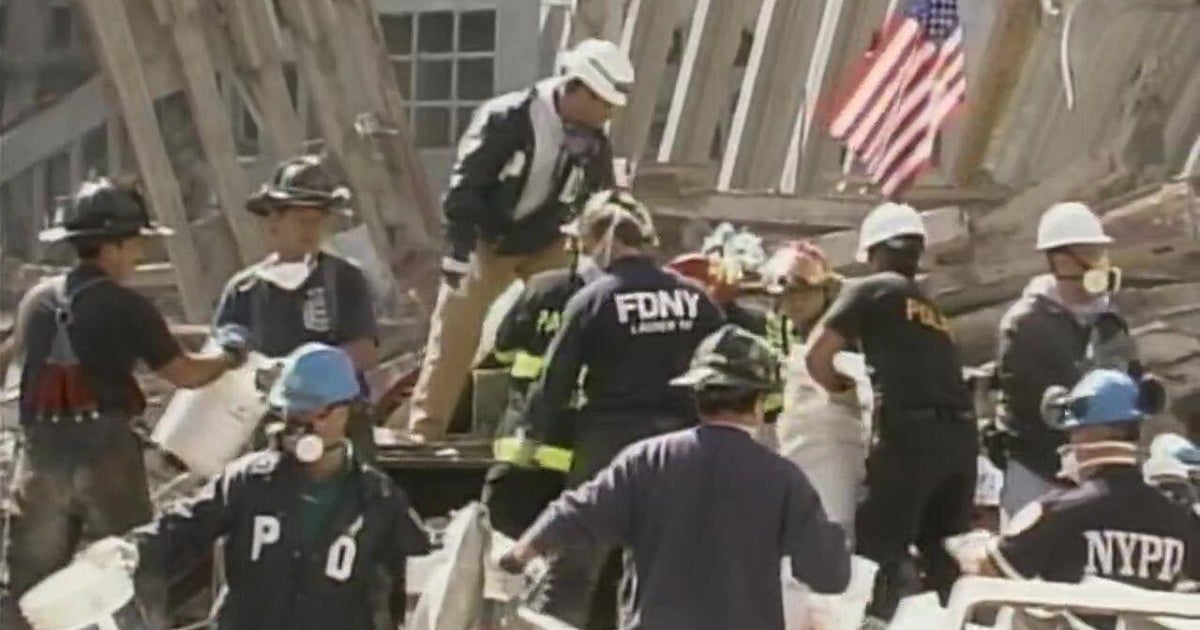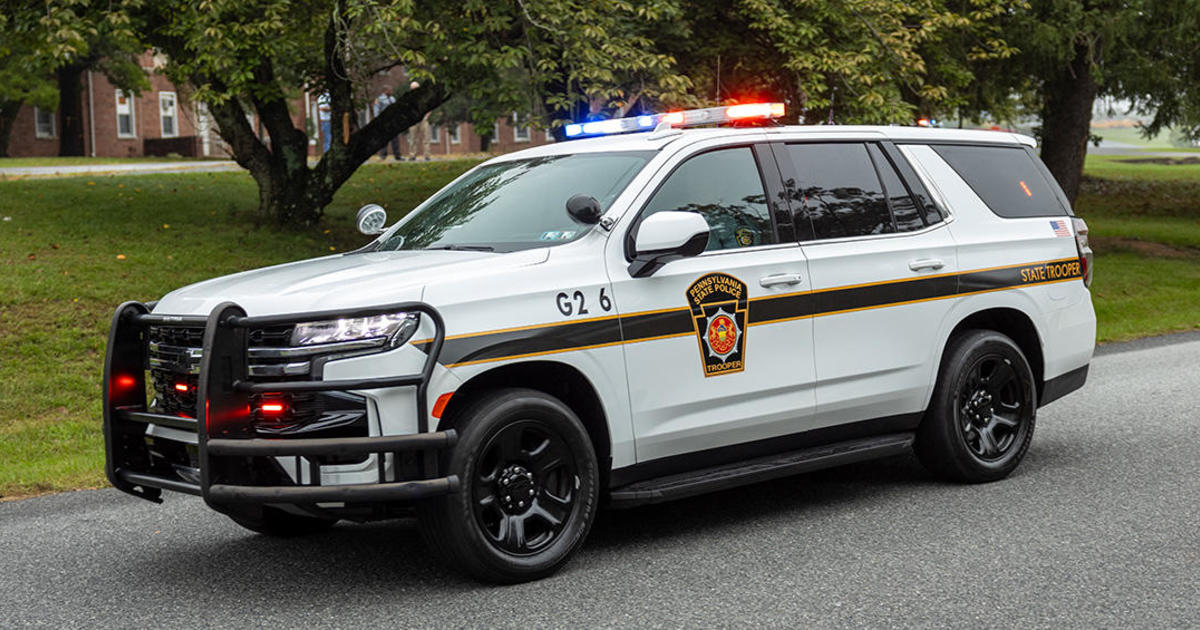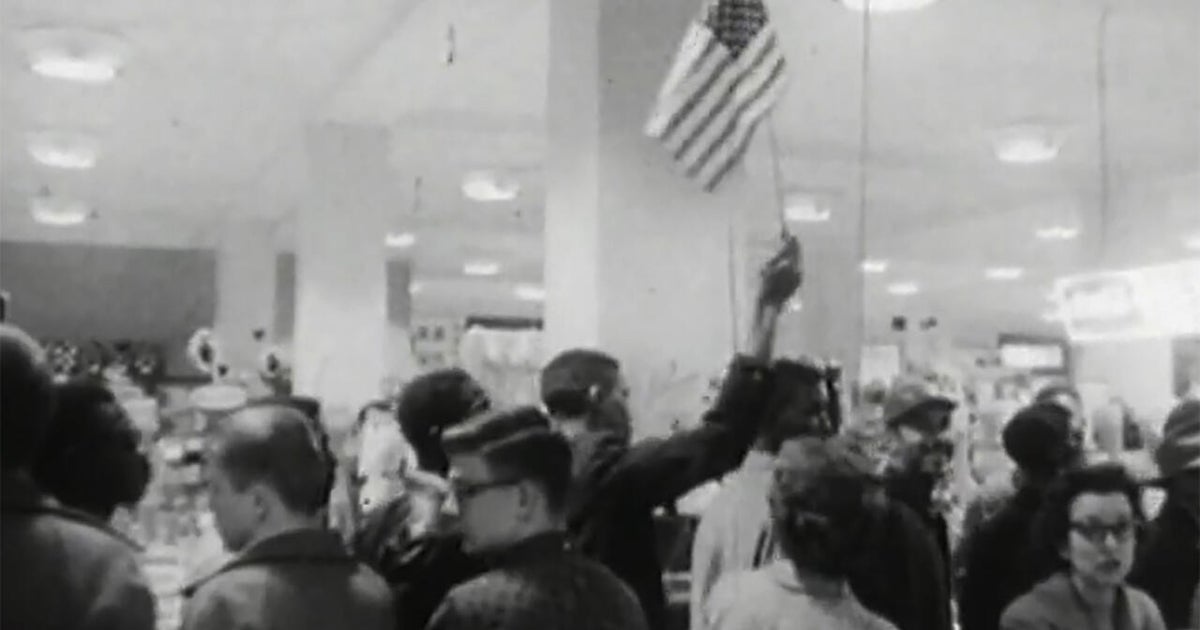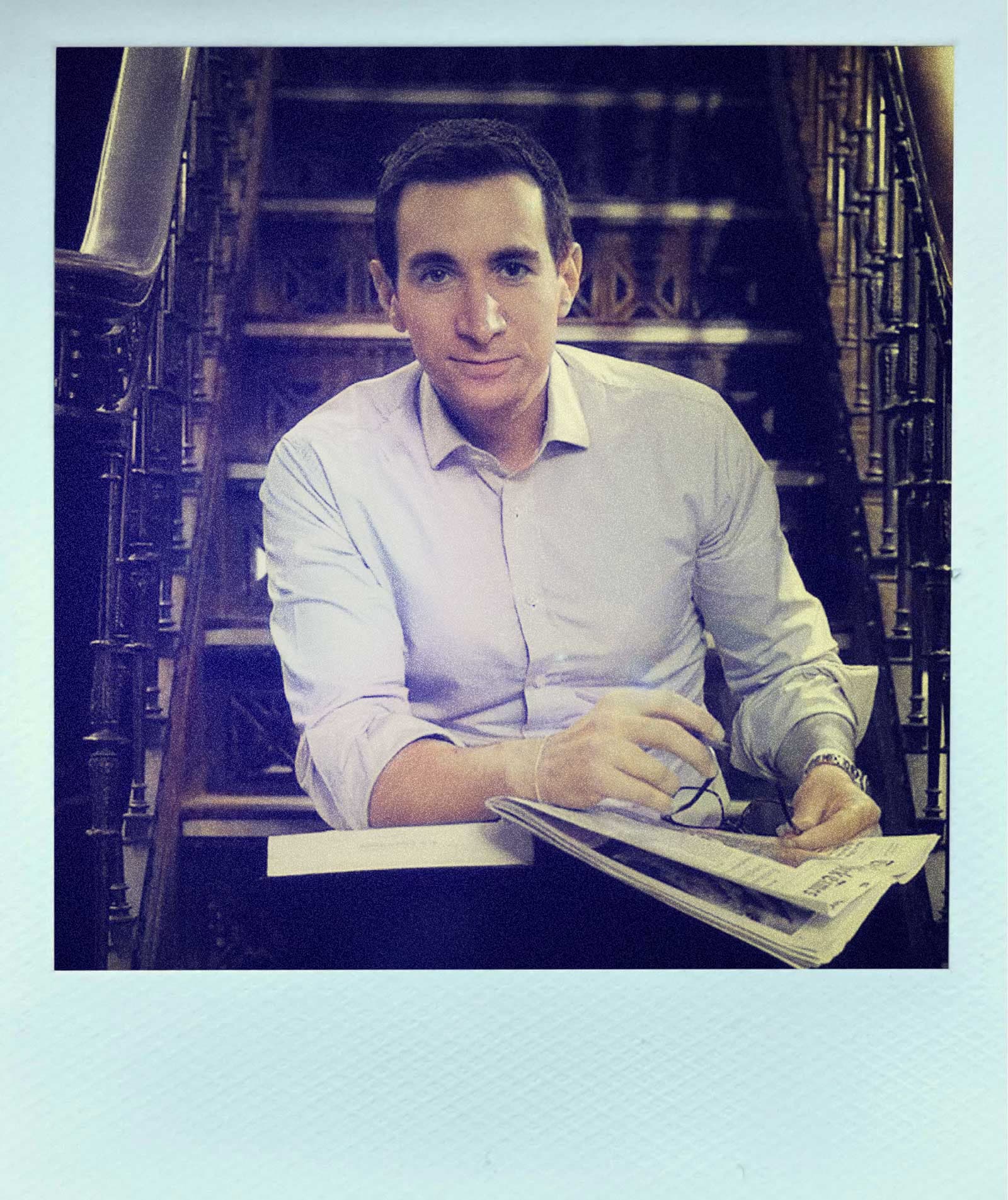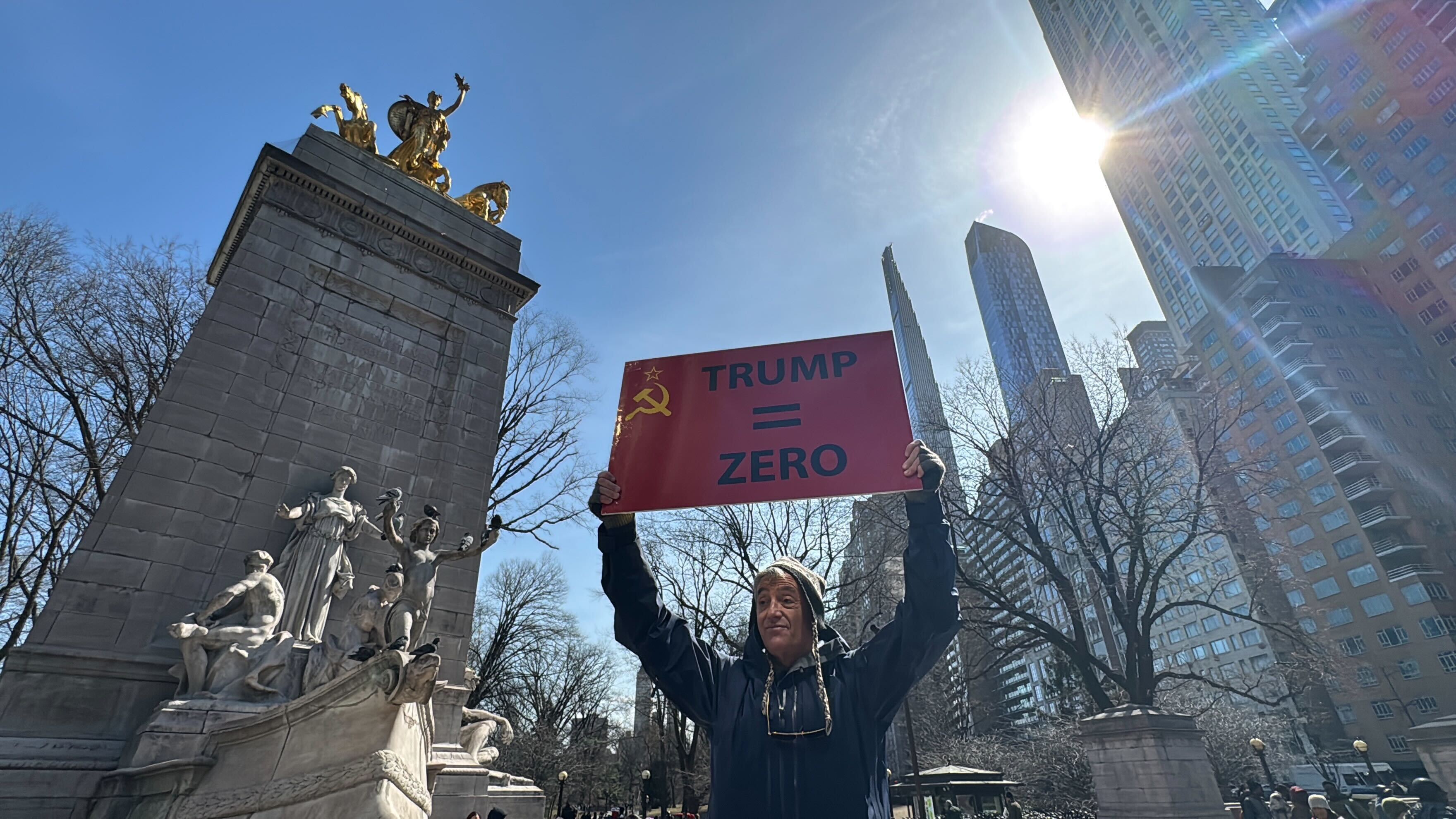How an act of racial violence reverberates across generations
For generations, Tulsa, Oklahoma had a secret.
Mechelle Brown, program coordinator at the city's Greenwood Cultural Center, recalled, "My mother cared for an elderly white man, who on his death bed rambled on about the smoke and the fires and the shooting and the killing."
Brown's mother tried to learn more. "She went to her in-laws and said, 'What is he talking about? What happened in Tulsa?' And they said, 'Look, we don't talk about that around here. And don't go asking anybody about it.'"
The secret was passed on from generation to generation. "We never discussed Black Wall Street or the 1921 Tulsa Race Massacre," Brown told New Yorker staff writer Kelefa Sanneh.
The Tulsa Race Massacre happened 99 years ago, when white Tulsans descended on the city's thriving black district, known as Black Wall Street. White rioters killed hundreds of black residents, and burned the neighborhood to the ground.
It was sparked by an accusation that a black man attacked a white woman in a white-owned office building. Brown said, "There's a scream, the elevator doors open and a man working in the building came running to see what had happened, and claimed that Sarah Page has been assaulted. By the end of the day they were claiming that she had been raped."
According to Tulsa Mayor G.T. Bynum, "It wasn't taught in schools. The newspapers that reported on it were removed from our library. It was actively covered up in our community."
Bynum said he first heard about the massacre in 2001: "Somebody brought it up and I thought, 'That's ridiculous. There is no way something that awful happened in Tulsa and nobody talked about it for 80 years?' But then, come to find that's exactly what happened here."
Tiffany Crutcher's great-grandmother, Rebecca Brown Crutcher, lived on Black Wall Street: "She was self-sufficient. She had a barbecue joint. She was beautiful."
And she barely escaped. "All of a sudden she had to run in fear of her life," said Crutcher. "Jumped on the back of a truck and fled to Muskogee."
Rebecca Brown Crutcher lived until 1994. Crutcher said, "We didn't get a chance to talk about the stories because of the fear. They were afraid to talk about it, because they thought it might happen again."
Crutcher said she felt some of that same fear after her twin brother, Terence, was shot and killed by Tulsa police in 2016. He was unarmed.
She recalled: "I answered the call and I heard my dad, my hero, screaming at the top of his lungs saying, 'They killed my son! They killed my son!' And I just finally asked, 'Who killed Terence?' And he said, 'The police.'"
Terence Crutcher was 40 years old when Officer Betty Jo Shelby noticed him standing near the side of the road; his car was in the middle of the street.
Officers in the police chopper, high above, were recorded giving a kind of play-by-play: "That looks like a bad dude," said one officer. "Looks like he's gonna be tased."
Crutcher said, "To see him walking away with his hands up – I see the visual of him in my head every night that I lay my head down, and I pray to God, I ask Him, 'Take this away.'"
Mayor Bynum took office three months after Crutcher's death. Sanneh asked, "A lot of people saw what happened to Terence Crutcher and they said, 'This wouldn't have happened if he was white.' Do you think that's true?"
"No, I don't," Mayor Bynum replied.
Hundreds of mourners turned out for Terence Crutcher's funeral. Bynum suggests that the drugs found in Crutcher's system made him less able to follow directions. Officer Shelby said Crutcher failed to follow orders to stop, and she shot him believing he was reaching into his car for a weapon.
Bynum said, "It is more about the really insidious nature of drug utilization than it is about race, in my opinion."
In 2017, Officer Shelby spoke with Bill Whitaker on "60 Minutes": "If I wait to find out if he had a gun or not, I could very well be dead," she said. "There's something that we always say: 'I'd rather be tried by 12 than carried by six.'"
"But as it turned out, he did not have a gun," said Whitaker.
"No, he did not."
Protests followed, after a jury found Officer Shelby not guilty of manslaughter.
Mechelle Brown said the same attitudes that led to the Black Wall Street Massacre in 1921 linger to this day. "No one was ever held accountable for the hundreds of lives that were lost," she said.
Sanneh asked, "Do you think that this memory of the Tulsa Massacre also shaped the behavior of the police in Tulsa in the generations afterward?"
"Not as much as racism that continues to be prevalent in our community," Brown said. "Racism is something that is learned at a very young age. And during the massacre, there were white men who went and gathered their sons, and brought them to fight alongside them. They gave them the right to carry a gun, and to shoot an innocent black person without any fear of, any type of consequence."
Tiffany Crutcher said she was stunned by Officer Shelby's acquittal. When asked if he was satisfied with how the case played out, Mayor Bynum said, "I think we have to have faith in that justice system."
Still, last week Bynum announced that he's proposing an independent monitor to review police actions.
Sanneh asked Crutcher, "What was the thing you most wanted to change in the aftermath of your brother's killing?"
"I wanted to change the culture of policing, this notion of us-versus-them," she replied.
So, Crutcher, a former physical therapist, is now a full-time advocate for police reform.
"But the police killed your brother," Sanneh said. "How do you get to a place where you're not afraid of the police?"
"I will be honest, I am afraid," Crutcher said. "But I do believe that we can get to [that] place, if we change policies and if people are held accountable."
Mechelle Brown said, "As a resident of Tulsa, as a Black mother, I am scared for my children. I am scared for this younger generation who are tired of being told to pray about it, to sing, to go to church, to put it in God's hands. They're tired of hearing that."
Ninety-nine years after Black Wall Street, the fear lives on. "Who would think," said Brown, "in 2020, in the United States of America, that we would fear the very people that are meant to protect us?"
Tiffany Crutcher can't change how her brother died. But she hopes there are things she can change … for Tulsa, and for herself. "I believe that in order for that to happen, the laws at the highest level that give police officers the authority to commit legal murder with no accountability have to be changed," she said. "The use-of-force standard has to be changed. And when that happens, I believe that he could then finally rest in peace."
"And that you could find some peace, too?" said Sanneh.
"Absolutely. Absolutely."
See also:
- Possible mass grave from 1921 Tulsa race massacre found: "For decades it was hush-hush" ("CBS This Morning," 12/17/19)
For more info:
Story produced by Mary Raffalli. Editor: George Pozderec.
